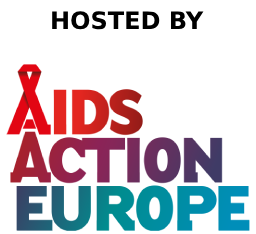Civil society welcomes European Parliament push for a more ambitious EU health budget in 2021-2027
The EU Civil Society Forum on HIV/AIDS, tuberculosis (TB) and viral hepatitis and the Civil Society Forum on Drugs, expert groups to the European Commission which are comprised of leading civil society organisations at the national and regional level in the EU and neighbouring countries, are encouraged to note that the European Parliament has improved the Commission proposal on the European Social Fund Plus (ESF+) by suggesting to increase the budget for Health Strand from EUR 413 000 000 to EUR 473 000 000.
Civil society groups had expressed strong concerns over the Commission’s original proposal to cut health funding by 8% compared to the 2014-2020 period in the new merged ESF+, noting that more ambitious funding is crucial for the next Health Programme as we work to tackle increasing health inequalities in Europe.
The forums also welcome the Parliament’s position on the need for more ambitious political leadership and adequate technical and financial means to provide a sustainable regional response to the fight against HIV/AIDS, TB and hepatitis in Europe through continuous investments in innovative community-based approaches in the Union and neighbouring countries.
“ Civil society has long been calling on the European Commission to take a leading role in the response to HIV/AIDS, TB and viral hepatitis in the EU by putting in place political strategies to effectively combat the three epidemics within the wider European region, as with the current approach the EU would not be able to fulfil its commitment to achieve the Sustainable Development Goals (SDGs) targets and to end the epidemics of AIDS, TB and combat viral hepatitis by 2030, ” noted Marine Ejuryan, co-chair of the Civil Society Forum on HIV/AIDS, tuberculosis (TB) and viral hepatitis.
The Chair of the Civil Society Forum on Drugs, Laurene Collard, echoed support for the Parliament report, while also noting the need to ensure individual drug use is treated as a health and social issue more generally: “Drugs are an important health and social issue for people living in the European Union, and it is of crucial importance that both the Commission and the Parliament worked to recognise this in their respective positions. More broadly, it’s a key factor that this issue is kept in focus in our drugs strategies generally. Currently, budget allocated to supply reduction far outweigh those for demand reduction. This needs to be balanced, as effective prevention, harm reduction and treatment interventions have proven to be efficient in terms of health as well as cost-effective : these are all priorities which need to be further bolstered.”
Both forums are also encouraged to see some improvement in the area of addressing the existing obstacles to civil society participation in the programme, strong language on the SDGs as guiding framework for the implementation of the Union’s health policy , the need to transition to people-centered integrated care , and the Parliament’s support to the development of Health in All Policies by establishing processes by which health implications can be considered and taken into account in all policies.
The forums urged the Parliament to continue to be a leader on prioritising health in the next EU budget during the inter-institutional negotiations and leave a healthy legacy for future generations by safeguarding a reinforced future Health Programme.

